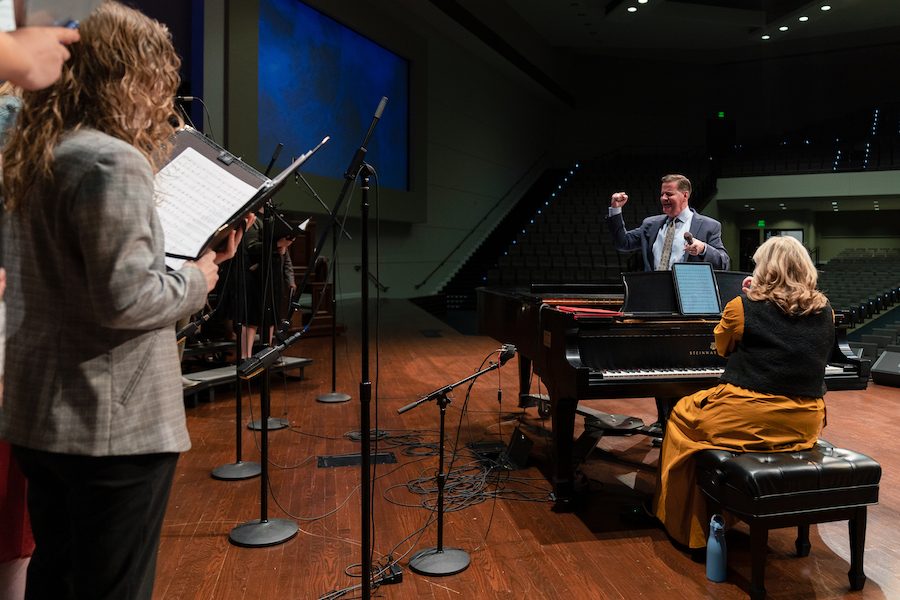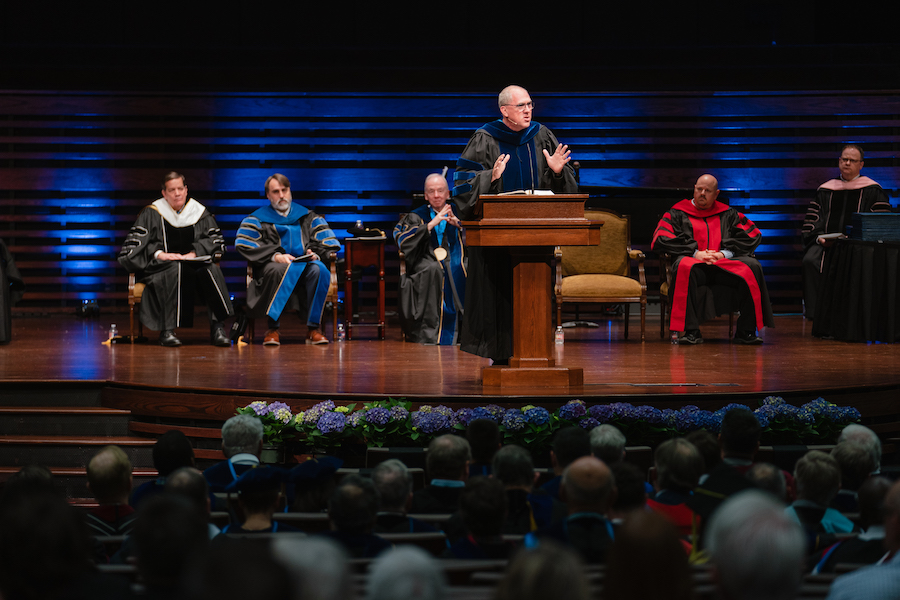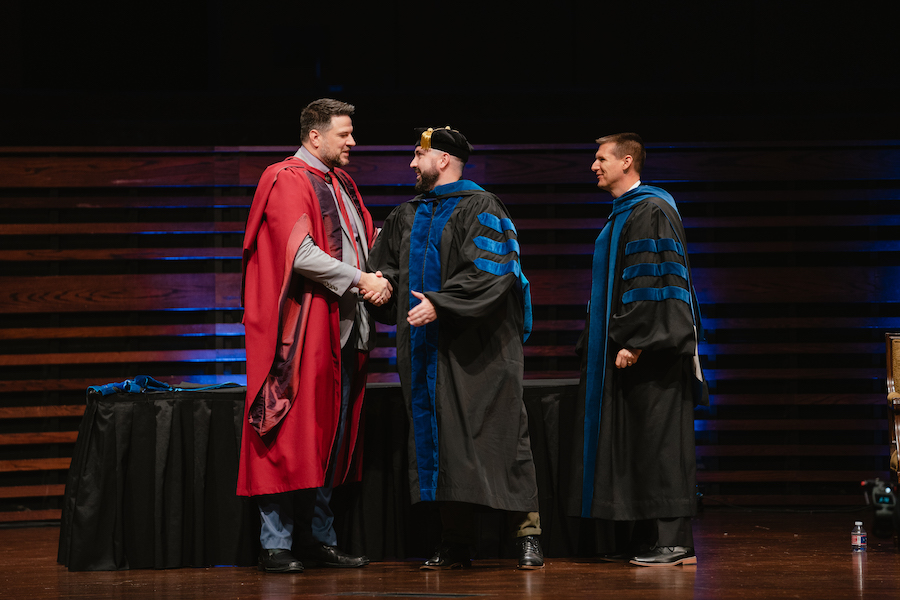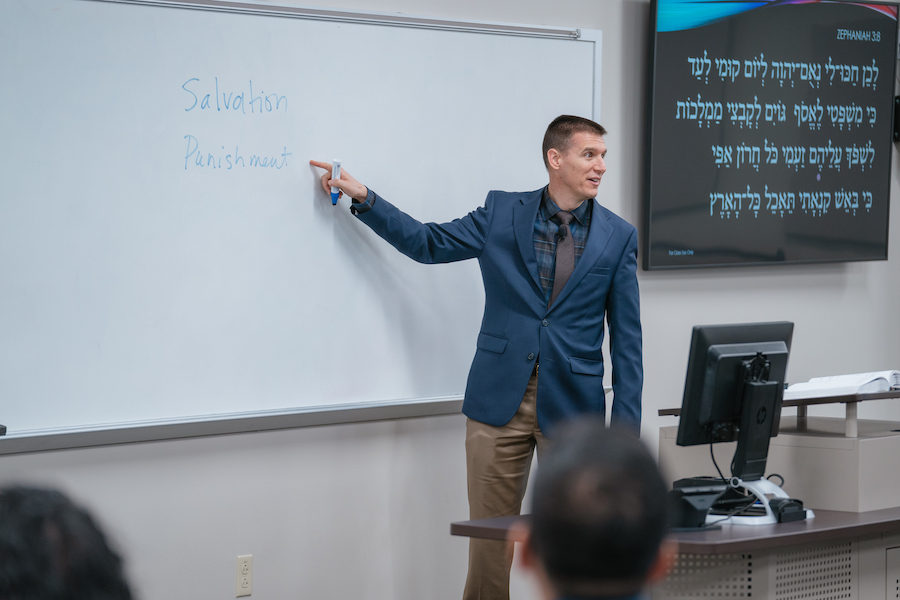Women’s Auxiliary celebrates student accomplishments, encourages women to choose joy
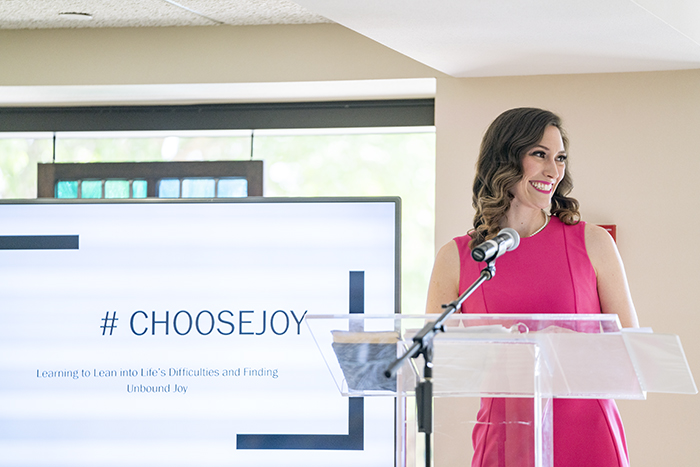
For many years, Women’s Auxiliary ministry partners have supported Southwestern women through prayer, scholarships and various programs such as Dressed For Service, a ministry that outfits graduating female students and wives of graduating students with a new outfit suitable for interviews, graduations and other special occasions. Celebrating its 13th year, 39 women from Southwestern’s Fort Worth and Houston campuses participated in Dressed for Service this semester, six of whom displayed their new outfits in the Spring Style Show at the Women’s Auxiliary Tea, April 11.
The annual Women’s Auxiliary Tea is a special time for the women of Southwestern to gather in fellowship, to pray together, and to learn how they can collectively support Southwestern. After the style show and tea, the more than 400 women in attendance had the opportunity to hear from Ph.D. student Katie Frugé.
Frugé shared her testimony of what it has meant to choose joy in the midst of suffering. Her story, she explained, is not one she would have chosen for herself, but one she “would not change for anything in the world.”
After moving to Fort Worth to pursue a Master of Divinity alongside her husband, Frugé was eager to see what the Lord would do in their lives and how God would use them. But in 2011, their lives took a different path than what they had anticipated.
At about 25 weeks pregnant with their first daughter, Eve, Frugé learned that their daughter had survived a rupture of the amniotic sac at only six weeks. Eve’s life was ultimately spared, but her body had suffered. Born a congenital double amputee, Eve’s first year of life consisted of many surgeries, and she has endured thousands of hours of physical therapy in the years since.
Frugé described a type of suffering she did not know was possible. She did not think she had the strength to carry on physically or spiritually, but Frugé said she was quickly reminded that she was under the protection of a God in whom she could take refuge.
But they were not finished learning yet, Frugé said. In 2014, she and her husband were given the gift of their second daughter, Lissy. Doctors indicated that Lissy would be born a healthy and happy baby, but all of that soon “came crashing down.” About 24 hours after Lissy’s birth, the Frugés learned that Lissy had suffered brain damage as a result of a virus she contracted at about 20 weeks.
The grim outlook for their daughter’s health was more than Frugé could bear. Grief-stricken, Frugé said she was tempted to “curse God and die,” referring to the words of Job’s wife in Job 2:9. She thought, “How can a loving God allow a family who has already suffered so much let a baby suffer so cruelly so early?”
Strength to face the future seemed impossible, but Frugé was eventually reminded of the promises of God. “I knew that I served a God who has immeasurable strength,” Frugé said. “I made the decision that I would not ‘curse God and die.’ He has shown me up to this point, and He will show me through the rest of this.”
Frugé would again be tested two years later when she learned that she had tested positive for CDH1, a genetic mutation that carries with it an increased risk for stomach cancer. After the diagnosis, Frugé said she struggled with sensing God’s presence.
Facing a gastrectomy, Frugé said, “I cried out to the Lord, ‘Where are you?’ And in that moment, He came—because He’s a good Father.”
Reminded of God’s goodness and faithfulness to carry her through all circumstances, Frugé reflected on the many ways in which she has learned to choose joy. These lessons were not easily learned, she added, but they ultimately led her to experiencing a joy unique to Christians.
“Trials do not determine our joy,” Frugé said. “Joy is not determined in our circumstances. Joy is determined on the presence of Christ alone.”
